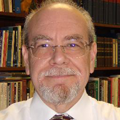Bringing about organizational change isn’t rocket science, but it’s not easy either. Those deans who step into a leadership position that requires engaging in institutional and organizational development, in effect and by default, will need to bring about changes on several levels: administrative, cultural, organizational, relational, and in processes and structures. In other words, institutional development is systemic. It requires addressing change in everything all together at the same time.
One aspect of bringing about institutional change is problem solving, and that skill is a major part of the game. Every change brings about a potential new problem. And that problem needs to be solved. For problem solving I know of few things more helpful than the Feynman Problem Solving Algorithm. I’ve found that if I follow it rigorously and to the letter it works every time:
The Feynman Problem Solving Algorithm:
1) Write down the problem.
2) Think very hard.
3) Write down the solution.
A second more helpful list comes from John Champlin who identified seven critical factors for bringing about effective change in an institution:
- The creation and support of clear, attainable goals that are publicized and constantly in use
- The presence of a change agent who can effectively break the equilibrium (homeostasis) holding an organization in place
- The use of a systematic, planned process that is open and subject to alteration
- The involvement of the community as an active partner and participant in any major change
- The presence of effective leadership with vision, a sense of mission, a goodly measure of courage, and a sense of the importance of the mission
- A commitment to renewal that disallows compromising for lesser attainments and always aspires to higher levels of sophistication.
Questions:
Do you have a framework for interpreting and guiding organizational change in you theological school?
Have you published your goals for the changes needed in your school?
How effective are you in soliciting and attracting support from others to help bring about change?
Do you challenge your organization and its members to higher standards of behavior and performance?
Adapted from Perspectives on Congregational Leadership, by Israel Galindo (Educational Consultants). Israel Galindo is Dean and Professor of Christian Formation and Leadership at the Baptist Theological Seminary at Richmond. He participated in the first Wabash Center colloquy for theological school deans.
About Israel Galindo
Israel Galindo is Associate Dean, Lifelong Learning at the Columbia Theological Seminary. Galindo writes for the “Along the Journey” blog of the Columbia Theological Seminary, and, the Digital Flipchart blog. His most recent books are Mastering the Art of Instruction: The Nine Essential Instructional Skills Every Teacher Must Master, Stories of the Desert Fathers: Wit And Wisdom for Today’s Bewildering Times, Seeking the Holy: An Introduction to the History and Practice of Spiritual Direction for Today’s Churches, and Theories of Learning: Approaches to Teaching and Learning for Christian Educators and Theological Faculty
